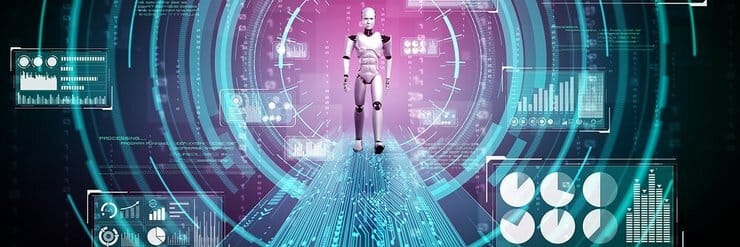- AI Journal
- Posts
- Weekly Musings - AI Journal - Issue #4
Weekly Musings - AI Journal - Issue #4
Artificial Intelligence (AI) is the ability of digital computers or computer-controlled robots to perform tasks commonly associated with intelligent beings. AI often refers to developing systems with intellectual processes similar to humans, such as reasoning and generalizing from experience.
It is a powerful tool that can use to transform every aspect of our lives. It's already changing how we use the information and analyze data, which has enabled people from all walks of life to have access to improved decision-making skills.
Some of the best articles of the week

These five AI developments will shape 2021 and beyond | MIT Technology Review — www.technologyreview.com
Despite the travesties of 2020, artificial intelligence has quickened its progress. Baidu upped its performance across vaccines, autonomous vehicles, language processing, and quantum computing.

Data leaders are focusing on customer experience analytics, external data, and using data to meet equity and inclusion goals.

What are the top AI trends for 2021 and how will they change how business gets done? Learn about Tiny ML, multi-modal learning, and more from AI experts.
Some Tweets which we Found Interesting
Artificial intelligence may be set to reveal climate-change tipping points - Science Daily: Artificial intelligence may be set to reveal climate-change tipping points Science Daily dlvr.it/S87stH#AI#artificialintelligence#Finperform
— Suriya Subramanian (@SuriyaSubraman)
3:48 PM • Sep 23, 2021
The latest CompTIA top 10 emerging technologies list focuses on top business applications related to artificial intelligence (AI) and IoT. #artificialintelligencechannelfutures.com/business-model…
— Synergo Group (@SynergoGroup)
3:28 PM • Sep 23, 2021
How Machine Learning and AI are Transforming the Finance Industry. #IoT#AI#machineleaning#financebuff.ly/39qjjfV
— Simone Smith (@SimoneKnaap)
4:02 PM • Sep 23, 2021
Artificial Intelligence Jobs

Data Analytics - Data scientists, use historical information to make predictions about new trends or outcomes. To do this, they look at what's happened before and how that might be relevant in predicting today's situation.

Research Scientist - needs to be an expert in applied math and machine learning. You should also have knowledge of deep-learning algorithms as well as computational statistics.

AI Engineer - Develop and train deep learning models to build AI-powered products. Include tips on how you can make the most out of your data and a background in artificial intelligence so that stakeholders can understand what these new technologies are capable.
Spread AI Wonders
